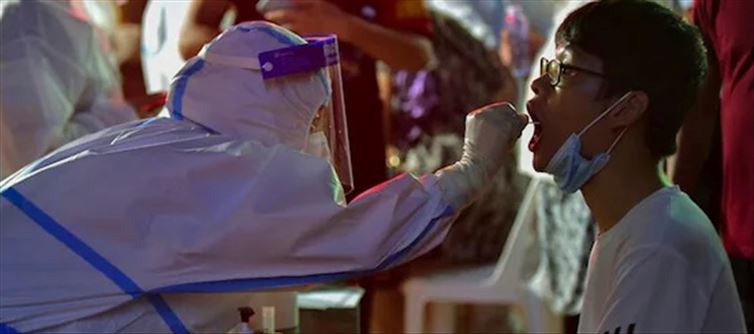
The respiratory virus known as HMPV usually manifests as minor symptoms such as fever, coughing, sore throat, and congestion of the nose. The virus can be particularly harmful to newborns, elderly people, and those with compromised immune systems, however, most people recover with rest and fluids.
HMPV Testing and Costs in India
Advanced techniques, such as the BioFire panel, which can identify many viruses, including HMPV, are typically needed for HMPV testing. This test is available in private laboratories all throughout India; prices range from ₹3,000 to ₹8,000 at labs like Tata 1mg laboratories, Dr Lal PathLabs, and Max Healthcare Lab. The cost of a thorough test that covers other viral illnesses might exceed ₹20,000.
HMPV: A Familiar Respiratory Threat
HMPV is a worldwide circulating infection that was first identified in 2001 and mostly affects children under five. The virus, a respiratory RNA virus, resurfaces in cold temperatures, according to Dr. Pinaki R. Debnath of RML Hospital in Delhi. In those with weakened immune systems, such as small children and the elderly, it spreads more readily.
Symptoms of HMPV
HMPV symptoms, such as a sore throat, nasal congestion, and a low-grade fever, mimic those of a mild cold in healthy individuals. However, more serious symptoms like wheezing, shortness of breath, and pneumonia may appear in vulnerable groups including the elderly and newborns.
Treatment for HMPV
HMPV does not currently have a particular antiviral therapy. Most people recover at home by managing their symptoms, getting enough rest, and drinking enough water. Hospitalization with therapies including oxygen therapy, intravenous fluids, and corticosteroids may be required in more severe instances.
Government Guidelines on HMPV
Health professionals, such as former WHO Chief Scientist Soumya Swaminathan, have told the public that there is no reason to fear despite the dangers. To lessen transmission, she underlined preventive actions like using masks, maintaining proper cleanliness, and staying away from busy areas.
It's critical to keep an eye out for symptoms in susceptible people, such as young children and the elderly, and to get medical help if necessary.




 click and follow Indiaherald WhatsApp channel
click and follow Indiaherald WhatsApp channel